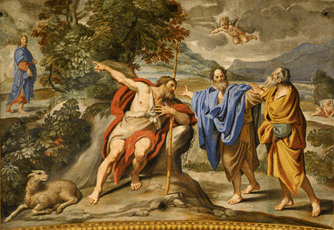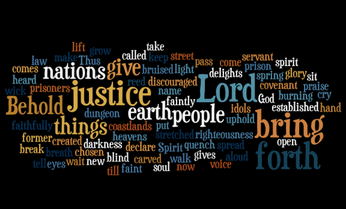|
As part of training for ordination, Episcopal priests go through a program called Clinical Pastoral Education. Most of us serve full time as hospital chaplains over a summer, encountering some of the most painful things people can go through, trying to be a spiritual resource to them, and debriefing the whole experience in small groups with professional supervisors. It is intense.
I did my Clinical Pastoral Education at Mass General, a major teaching hospital in Boston, with maybe 20 seminarians from all over the country. It was an incredibly valuable and challenging program, but one of the standout memories for me was the day we each observed surgery. Before we went in to get fitted for scrubs, one of the surgeons gave us a lecture on protocol. I remember thinking you could hear the echos of some previous bad experiences with seminarian observers as he said “If you even think you might be going to pass out or throw up, tell a nurse immediately.”
0 Comments
 We’re by the river Jordan this week, just like we were last week. John the writer drops us down by the Jordan with John the Baptist, and in this first chapter of his Gospel he shows us three days of a cumulative story, all focused around increasingly important testimony to who Jesus is. Now three days is a sort of natural rhythm. When there’s a Monday holiday, like this week, we often call it a three day weekend. Or conferences tend to run three days: the first day settling in, the second for all the content, and the third for the take-home application. We didn’t get day one in the Gospel this morning, but some of you will know the story. On day one, we saw John the Baptist baptizing crowds, and priests and Levites come out to him from Jerusalem. They want to know who this guy thinks he is. And interestingly, his answer comes in a negative form. “I am not the Christ.” I’ll tell you this much about the Messiah, says John: I’m not him. But they can’t just go back to Jerusalem and tell their higher-ups who John the Baptist is not. So they push him a little; “What do you say about yourself?” And this is where John quotes a famous line from Isaiah: “I am the voice of one crying out in the wilderness, prepare the way of the Lord.” Someone, he says, is coming after him, someone as yet unrecognized. …So there’s day one, an essentially negative witness: He’s not me. And a hint: he’s better than me.  There are four special texts in the book of Isaiah, called “Servant Songs”: We read one of them today as our first reading, and we'll read another next week. It seems that they were originally addressed to a sort of ideal Israel, picturing God’s whole people as his Servant. But even though the Servant Songs were written centuries before the time of Jesus, they are very important in understanding Jesus, because they are most likely the place in the Bible he looked to understand himself and his mission. When Jesus read and prayed over these texts he found his identity; he used them as a guide. So what God said to all of Israel, Jesus understood as applying to himself. And in fact much of what we just read eventually gets quoted in the Gospel of Matthew, our Gospel for this year, who says that Jesus fulfills everything it predicted. Since we’re observing today the Baptism of Christ, the day he formally took on his mission from God, I want us to read through this Servant Song closely together and think about it as a statement of what Jesus came to do and what his style is. As with any time we study a text closely, you will get far more out of the process if you actually read along and follow on your insert. |
Archives
July 2024
Categories |

 RSS Feed
RSS Feed